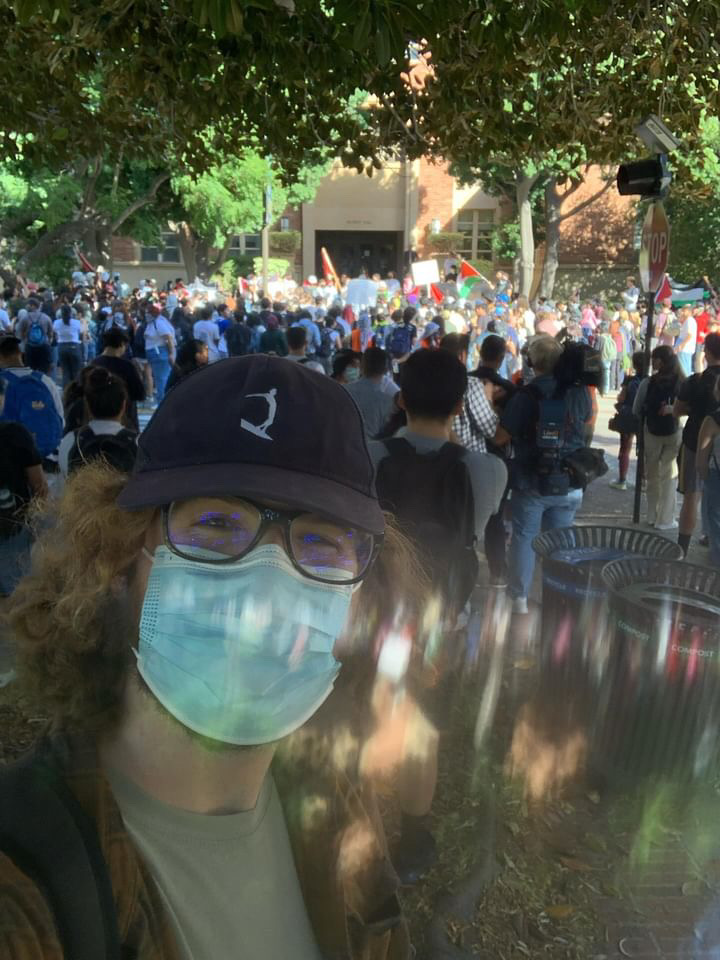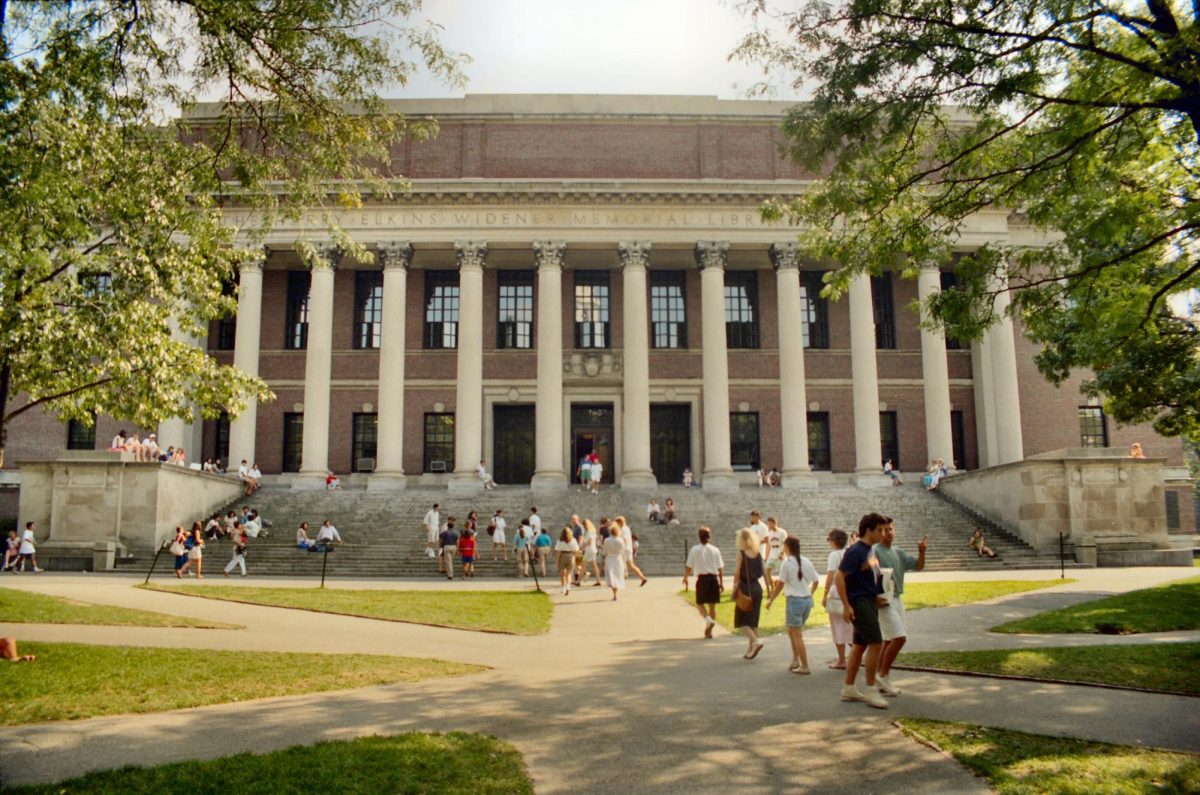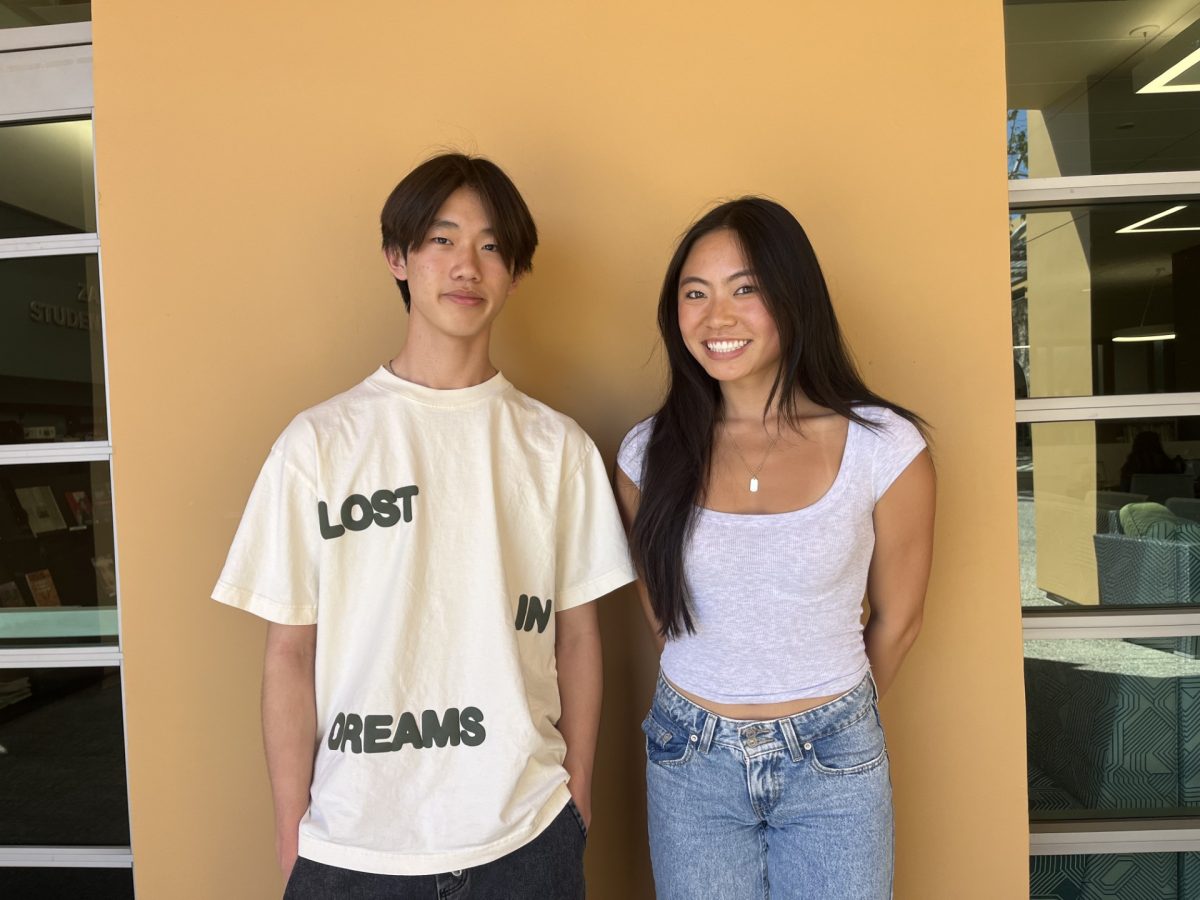Alumnus Gabe ‘22 regularly stands in the heart of UCLA’s campus quad with hundreds of students who gather weekly, holding signs with anti-war slogans and demanding a ceasefire in the Israel-Hamas war. In this light, the recent humanitarian and political crisis in the Middle East has reignited activism on college campuses and tested the parameters of free speech particularly with the rise of antisemitism and Islamophobia. Gabe describes a rising tension between UCLA student groups and administrators that began late last year.
“There definitely feels like a concerted effort by the administration to shut down and downplay the pro-Palestine protests,” Gabe said.
Gabe states that while pro-Palestine campus demonstration permits “are extremely delayed,” pro-Israel demonstrations appear to receive less scrutiny. Additionally, he shared that advocates for Palestine have faced threats from outside the university after UCLA’s protests were covered by major media outlets such as Fox News. Subsequently, people unaffiliated with the university came to their campus where protestors were “threatened and attacked.” He noted that while UCLA provides “much more security” to pro-Israel rallies, the lack of security at pro-Palestine demonstrations has created a “real culture of fear” for the physical safety of participants and their ability to voice their opinion.
“Discrimination, threats, violence and hate have absolutely no place in a university community dedicated to open-mindedness, respect and mutual understanding,” Chancellor Gene Block wrote in a letter reported by Los Angeles Times.
Beyond the current uptick in demonstrations, college campuses have historically been bastions of self-expression, collective action and free speech. The ‘60s and ‘70s saw college campuses and universities stage massive anti-war protests in response to the increasingly unpopular Vietnam War and became epicenters for challenging the status quo and promoting social justice during the Civil Rights Movement. More recently, college campuses were an arena for the Black Lives Matter demonstrations in 2020 as teach-ins, workshops and protests highlighted student dissent against structural racism. These deliberate and purposely visible displays of civil disobedience and unrest became the manifestation of a rising generation demanding change and equality. For millions of young adults, these institutions of higher education provide a unique atmosphere to create discourse, raise awareness and question the traditionally accepted norms in hope of breaking the stalemates of progress.
Currently, while some university administrators assert that they are committed to freedom of expression as protected by the Constitution and the precedents of U.S. Supreme Court rulings, others have redefined and altered school policy in response to criticisms that their institutions permitted hate speech and did not act decisively to prevent it. On Nov. 10, 2023, Columbia University suspended two pro-Palestinian chapters at their university, Students for Justice in Palestine and Jewish Voice for Peace. George Washington University, Brandeis, and Rutgers also suspended their chapters of Students for Justice in Palestine late last year. Florida Gov. Ron DeSantis called for the banning of Students for Justice in Palestine chapters in the state’s public universities. In response, the national Students for Justice in Palestine denounced these initiatives as building a framework for “censorship and intellectual manipulation.”
Major donors and influential alumni flexed their influence over prominent schools by threatening to withhold millions of dollars in donations over the university administrations who carefully walked the line between free speech and hate speech. University of Pennsylvania President Liz Magill resigned after testifying at a widely-scrutinized congressional hearing about antisemitic speech on elite college campuses. Harvard President Claudine Gay also resigned after a conflagration of criticism over her responses to Congress and an internal probe of plagiarism claims. The dependence of these private institutions on the financial support of mega donors exposed a fundamental weakness in academia: that the functioning of higher education can be leveraged and that less powerful opinions can be minimized.
“Universities need to be very careful of the influence of money…donors should not be able to decide campus policies or determine what is taught,” wrote University of Pennsylvania’s former board of trustees chair Scott L. Bok in an opinion piece for The Philadelphia Inquirer.
At Northeastern, alumna Audrey ‘22 believes that since she attends a private university, there is “more control in regulating protests.” She has noticed that Northeastern students have opted to hold more “silent demonstrations on campus.”
While some praised college administrators for taking action against possible hate speech, some civil rights groups and social activists contend that these interventions by financially powerful and well-connected alumni creates the framework for disproportionate influence on school policy.





